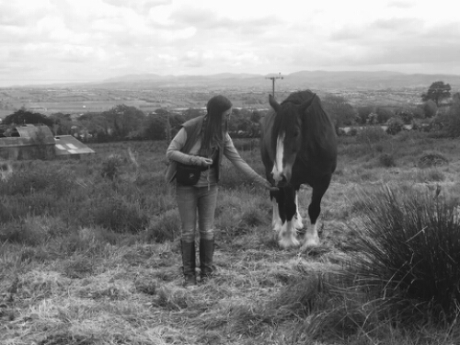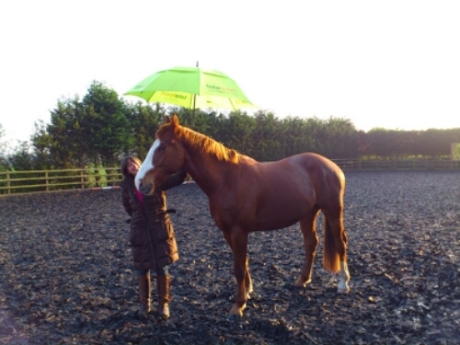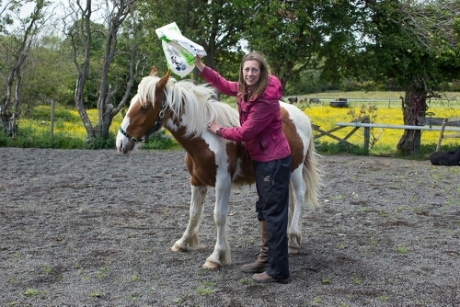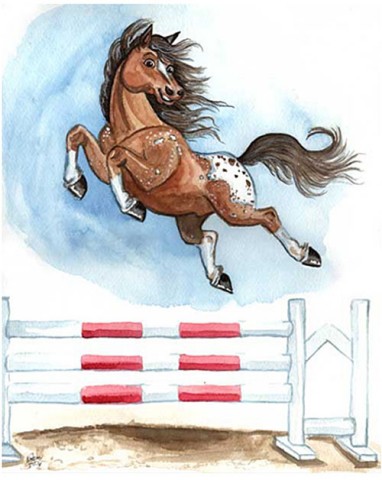I have been somewhat remiss about updating this site, however I do still keep getting emails and messages from people who have read and been inspired by the posts on it, even though they are four or five years old or more. I cannot tell you how lovely that is for me, it is so great to know that things that I wrote years ago are still having an impact on horses and their owners. I started this blog in 2012 after nine years in business teaching people how to use the clicker with their horses. Although what might be considered an old hand at teaching and training, I was really new to social media, but with a real passion for helping people better understand their horses. It was Shawna Karrasch who kindly steered me in the direction of a blog, before that I hardly knew what a blog was, let alone how to start one! I can’t say I’ve ever been particularly good at the whole social media or self promotion thing, but I do enjoy sharing my experiences through writing and teaching.
I have somewhat mixed feelings about social media in general. I did use facebook for a number of years. During that time I made plenty of acquaintances and a handful of good friends, however I found it to be a bit of a drain on my time and energy, so a year and a half ago I decided to stop using it, culminating in me deleting my account at the start of this year (2020). I know some would consider that the death knell for business, but I can honestly say I have noticed no difference in terms of the number of clients I have, the workshops and lecturing that I do, nor my income. What I have found is that I feel so much freer, I have more time to focus on what I do best, which is teach and train. I feel more creative and less frustrated. Okay, so I have NOOO idea what anyone else in the world is doing, except my actual ‘real’ friends and family that I am in regular contact with through normal (is that even a thing anymore?) channels. I don’t know what the ‘latest thing’ is in the clicker world, or even in the horse world. I don’t know what buzz words people are using to describe new techniques they have invented (that are actually old techniques, with old names, that a lot of us ‘old’ trainers have been doing for years).
I like my world. I like my freedom. I like my honesty and integrity. I like being able to keep developing what I do, influenced by the horses and people I meet and train, and of course tempered by the years of experience I have, alongside my academic qualifications and staying abreast of the latest research. These are skills that are fashioned in the forge of life, shaped by real situations and needs. They aren’t shaped by a need for bling, there is no fancy shine, no special angles, not set up for how they might appeal on social media and attract the right number of shares. Just real world training and experience.
It might not be appealingly packaged. I am not intentionally selling a lifestyle or an idea, I fail to tick probably every box on the influencer’s must do list, but I don’t mind. As long as people learn something useful, something fundamental, that leads them to being better trainers, having happier horses, then I am content.
Given everything that has happened in the world recently with the covid lockdown, I have had to engage more with the ‘online’ world than normal. I have set up some online courses so that people can access the content they would normally get if they attend my real world workshops or talks or practical demos. I have started doing online behaviour consultations and also coaching sessions for my regular clients. They are a small group, all individuals that I know and that are dedicated to working with their horses. I have learned to recognise the value of having small online groups as a way of staying in touch at a time when we can’t easily meet up. I use WhatsApp rather than facebook (I deleted it, remember?!), but I have loved staying in touch with the people that I know and like. It made me realise that my issue with facebook wasn’t facebook, it was the way I was using it. I don’t want or need to ‘nosy’ at other people’s lives, any more than I want or need them to ‘nosy’ at mine! I’m happy with my choices. I didn’t go into this business to be a celebrity, I went into it because I am passionate about what I do. Share that as you wish.
If you are interested in learning some real world training skills, no bling, just the useful stuff, then why not take a look at my website www.spencehorsesense.com and my podia storefront https://helenspence.podia.com/
and if you want to stay in touch with my latest thoughts and musings, please follow my ‘other’ blog https://spencehorsesense.com/2020/02/18/how-to-follow-my-blog/
Thank you!!!
Helen


















